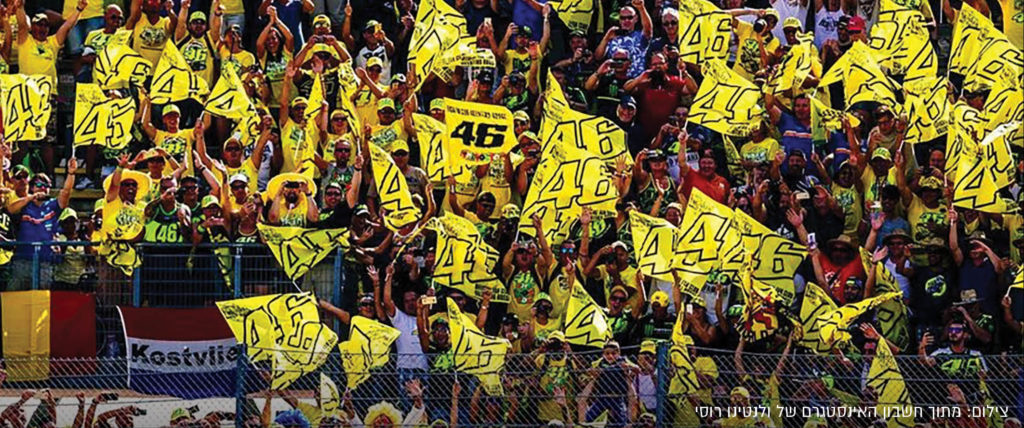The eternal child of motorcycle racing has grown up long ago — his last championship victory was 12 years ago. So how is it that he is still winning the most important battle, over the hearts of the fans? A farewell from Valentino Rossi
The Grand Prix motorcycle racing championship has been taking place since 1949. Twenty-something riders go around in circles, risking their lives, to be the first to reach the finish line. The championship didn’t gain much popularity until the end of the 1990s. Unlike car racing, where any spectator could somewhat identify with the experience, it was difficult for the crowd of non-motorcycle riders to relate to a bunch of motorcyclists wearing helmets, who compete in tight pelotons, seemingly senseless to the viewer.
All of that changed in the second half of the 1990s, when an Italian rider with tinkling blue eyes and a particularly wild sense of humor, named Valentino Rossi, arrived on the scene.
Rossi was not only an amazing rider who won championships one after the other. He was first and foremost a man of overflowing charisma, of memorable performances on and off the track, with an unusual sense of humor expressed in his Italian accented English. But most importantly, he had the elusive, almost magical gift of charisma.
Soon enough, the Rossi-mania spread from the yellow bleachers (Rossi’s color) to far beyond the racetrack — the world championship for motorcycle racing, the moto-GP, became a sport captivating millions to the television screens every Sunday. Rossi scored victories one after the other, and spectators from around the globe flooded the stands hoping to see the Doctor, or God, as some of the fans called him, crush his opponents, and indulge in victory celebrations concocted by a particularly talented creative director (Rossi himself).
Rossi became a worldwide celebrity. The championship spread to other countries and the stands became packed to their full capacity (motorcycle stands can accommodate 120,000 people). The rating of the races reaches 40 percent during broadcast hours.
Generations came and went, but Rossi, who started his career in 1996, continued competing.
The thing is, he won his last championship in 2009 and in recent years he has been competing against riders who were born after he started competing. And yet, the unwavering admiration that the fans hold for him is going strong.
Rossi's career can be divided into two parts — the years in which he crushed his opponents until 2009, and the years that followed, in which he no longer posed a threat to the championship (perhaps apart from one season, in which he lost the tenth championship in the last race). And yet, the fans remained loyal to him and painted the bleachers in Rossi-yellow, so much that many predicted that the glamor of the championship would fade with his retirement.
Before us is a perfect example of the art of publicity — Rossi proved that you don’t have to win a championship in order to earn the admiration of the audience. Even as he struggled to stay afloat in the hindmost of the table, his fans watched his every breath. Instead of rejoicing with him, his fans (including the undersigned of this post) mourned his losses, and took solace in the hope that the next race will be better.
We live to become stories, no more, wrote Elias Khoury in his book “Children of the Ghetto”. Rossi demonstrated, throughout a 25-year career, how a captivating story can overcome aging matter.
This past weekend, at the age of 42, Rossi announced his retirement from the Grand Prix motorcycle racing championship, the Moto-GP. In a race that took place two days later, Rossi finished 13th in line. It’s not a disaster, he said after the race. Next week, I hope to reach the top ten.


